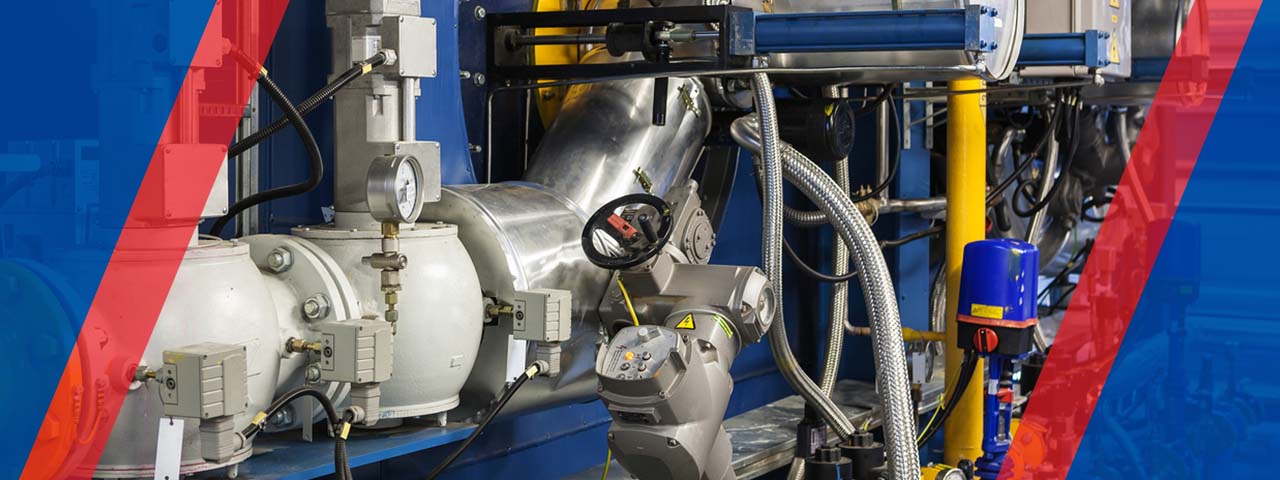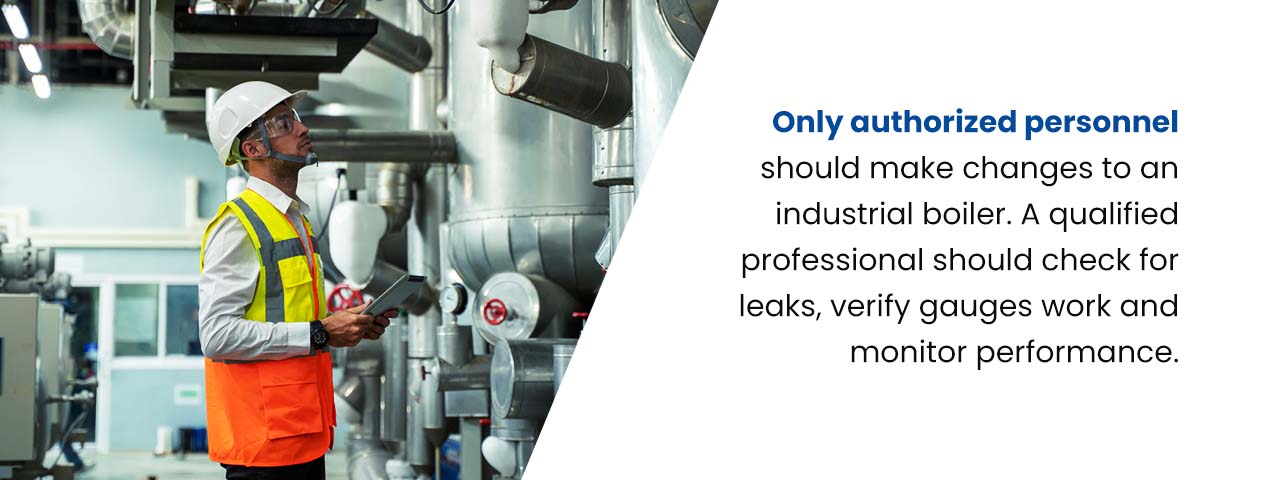Should You Replace or Fix Your Commercial Boiler?

The boiler inside your business needs to be in working order. Pressurized equipment should be monitored to ensure work environments are safe for employees and liquids can be heated accordingly.
If you’re a facility manager, you’ll need to act on commercial boiler maintenance and repairs. Is it better to restore or replace an industrial boiler? The answer will depend on several factors.
Consider the Age of the Boiler
Industrial boilers consume a great deal of energy — the technology runs around the clock to keep your operations moving. It’s important to understand boilers will require replacement at some point. An industrial boiler can last upward of 20-30 years when facility managers schedule regular maintenance.
This estimate is not a guarantee. Expect an increase in maintenance and repair needs for a boiler once the installation approaches or surpasses the manufacturer’s rated service life.
Recurring Repair Needs
Frequent repairs add up. Your business may benefit from a complete boiler replacement when the same issue presents itself repeatedly and your old boiler declines in efficiency. Review maintenance records for your boiler assembly to see whether complications derive from the same components or are widespread.
You may find your industrial boiler starts leaking or grows louder toward the end of its life expectancy. Facility managers can do their part by looking out for buildups and clogs within pipes. How long boiler pipes last will depend on how often they are serviced and environmental conditions. Some areas of a boiler you could see deteriorate are the burner, heat exchanger, combustion chamber and system controls.
Review Boiler Fuel and Energy Costs
Looking at energy use and fuel demands from the time a boiler is installed to the present day is useful for figuring out if you should repair or replace technology. Keep track of facility fuel consumption rates and energy bills to see if there is room for improvement.
Fuel Type Matters
The type of fuel your system needs and how much your plant uses will make it easier to see if repairing or replacing your technology is productive.
Most industrial boilers are powered by coal, oil or natural gas. Coal is becoming less common in the industrial field due to environmental factors. Some businesses choose to integrate boilers that run on biomass, like corn husks and wood chips, to minimize their carbon footprints.
When your industrial boiler runs on a more expensive fuel variety and breaks down often, it’s worth exploring your options for a replacement assembly. Estimating the amount of fuel you’ll use in the future is effective in making the right decision for your plant.
Options for Retrofitting
Maybe your industrial boiler is a few years old but fuel costs are increasing for your build. Facility managers might think about retrofitting their units. This involves changing boiler parts to support a fuel type different than what was intended by the manufacturer.
You could potentially save money by modernizing an industrial boiler with updated parts. Make the transition from solid, liquid or natural fuel to another variety that makes sense for your budget.

Evaluate Facility Safety Concerns
Look out for your employees when deciding to repair or replace an industrial boiler. Pressurized vessels are dangerous when maintenance intervals are missed. Most boilers feature a pressure relief valve, but there is a chance an unchecked assembly could wear out to the point where superheated steam causes an explosion.
Only authorized personnel should make changes to an industrial boiler. A qualified professional should check for leaks, verify gauges work and monitor performance. Attending to a cracked boiler or rusting surfaces with an experienced technician is essential for creating a safe workplace. The technician you rely on for system inspections should inform you when adding a new unit to your plant is the best course of action.
Boiler Problems to Address Quickly
The following details describe situations when an industrial boiler may fall short of compliance standards:
- Surges and pulsations: There is a chance the burner or combustion fan is disrupting the flow of fuel and air throughout the boiler assembly.
- Boiler stops suddenly: This indicates safety controls have kicked on due to faulty operation controls. Safety features stop the boiler from running to reduce the chances of an accident.
- Temperatures skyrocket: A qualified technician may find a boiler’s operating conditions unsafe because of decreased water levels or poor water quality.
Investigate Boiler Configuration and Efficiency Issues
A popular boiler setup involves having two units in a facility. One boiler is the primary assembly and carries the heating load while the opposite boiler is for emergencies. This configuration works well for heating and power, but it is far from the most efficient.
Boiler technology is capable of changing its firing rate to accommodate different loads. Once a load plummets below an assembly’s minimum rate, it’s common for the unit to power down. The cycling process puts additional stress on boiler parts when temperatures fluctuate. A facility manager might think about adding several small boilers in a plant and configuring them to turn on with increasing loads.
This setup keeps professionals ready for emergencies and eliminates the need for cycling. Improve efficiency and system reliability, as the shutdown of one boiler will not influence heating capacity.
Update Your Boiler for Maximum Productivity
A boiler’s efficiency level is typically lowered the longer the unit is in use. Scale inevitably builds up on burner surfaces, and repairs become more of a short-term fix. Just because a boiler is in working condition does not mean you’re getting the highest level of performance out of the installation. Think about replacing an industrial boiler when there is evidence performance levels are not what they used to be.
Choose McNeil Company for Boiler Installation and Repair Services
The experts at McNeil have been serving customers in the metal, petroleum and chemical industries for over 80 years. Whether you’re interested in upgrading from your existing boiler or you could use assistance with a repair, know we’re here for you with locations in New Jersey, Florida and Virginia.
We work on industrial boilers of all sizes and varieties. There’s a reason why industrial organizations trust us to come up with solutions for facilities — our customers are our top priority, and we won’t rest until you’re satisfied with our services. Ask the McNeil team for a quote to hear more about pricing details.




